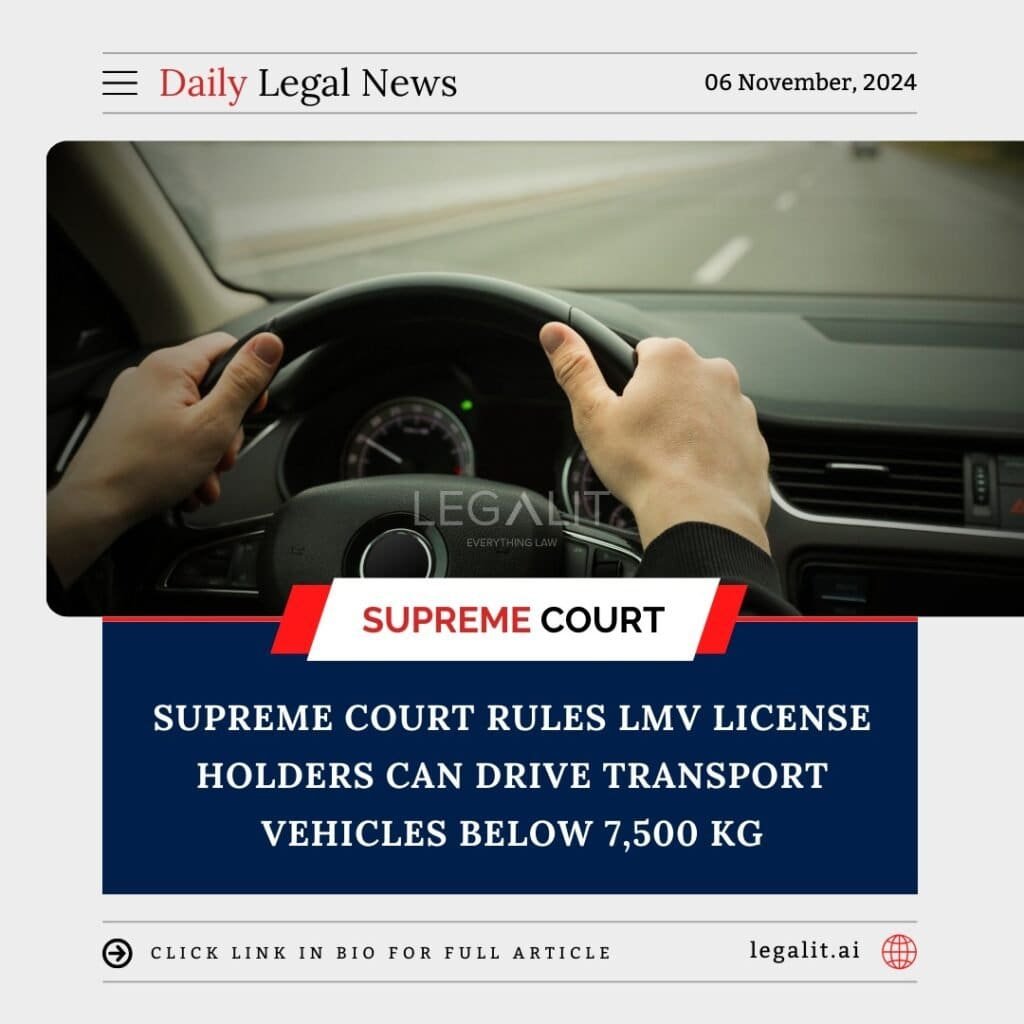
The Supreme Court of India has ruled that individuals holding a Light Motor Vehicle (LMV) driving license are entitled to operate transport vehicles with a gross weight not exceeding 7,500 kg. This landmark ruling clarifies the scope of vehicle classifications and the eligibility criteria for drivers of certain transport vehicles, especially in cases where there is ambiguity about whether an LMV license extends to commercial vehicles.
Background:
In India, the licensing system differentiates between licenses for private vehicles (LMV) and those for commercial or transport vehicles. Traditionally, a separate transport vehicle license was required for driving goods carriers and passenger vehicles over a certain weight. However, the recent Supreme Court judgment addresses a discrepancy where some individuals with LMV licenses were denied the right to operate smaller transport vehicles under 7,500 kg.
Court’s Rationale:
The Court acknowledged that the terms of the Motor Vehicles Act, 1989, and the relevant Central Motor Vehicles Rules had not clearly specified that LMV license holders were restricted from operating such transport vehicles. It was noted that LMV license holders should be allowed to drive vehicles under 7,500 kg based on their existing license qualifications. The ruling was based on the interpretation that a more inclusive understanding of the law benefits both the drivers and the transport sector.
Existing Measures:
The ruling aims to streamline the process for drivers seeking employment in the transport sector by recognizing that LMV license holders can safely operate vehicles that fall under this weight category. The verdict clarifies that no additional commercial driving license is needed for vehicles under the 7,500 kg threshold, which could reduce logistical barriers in India’s transport industry.
Conclusion:
The Supreme Court’s judgment makes it easier for LMV license holders to drive a wider range of vehicles, expanding their opportunities in the commercial transport sector. This could potentially address driver shortages in certain areas and provide more flexibility for individuals looking to work in transport services without the need for additional licensing steps.